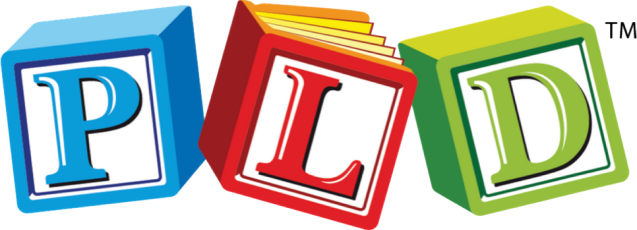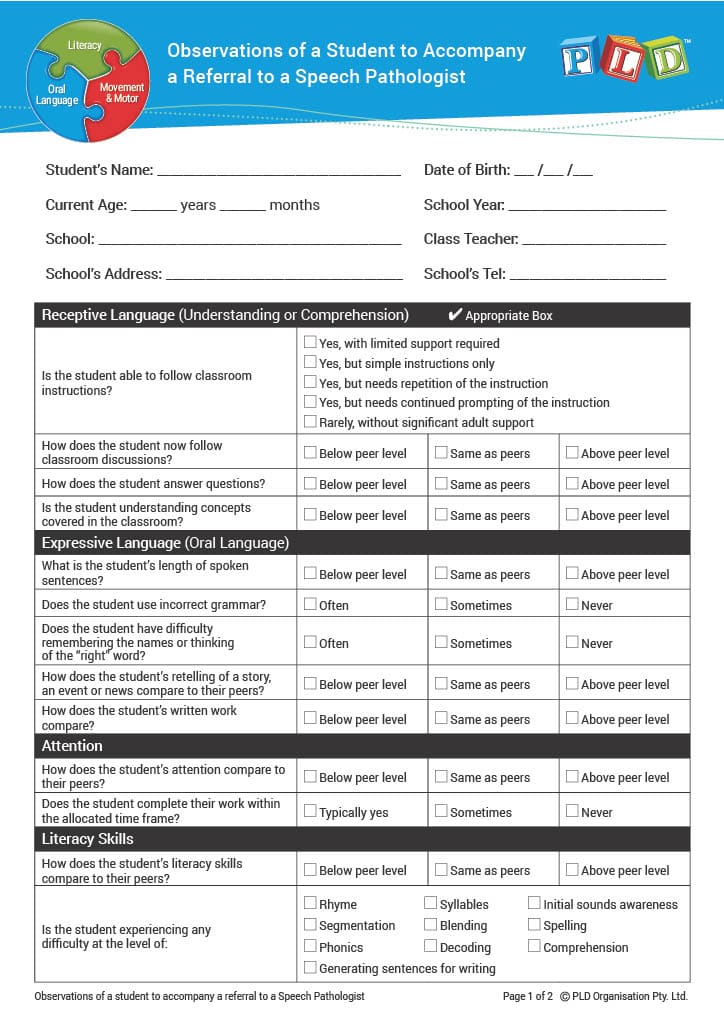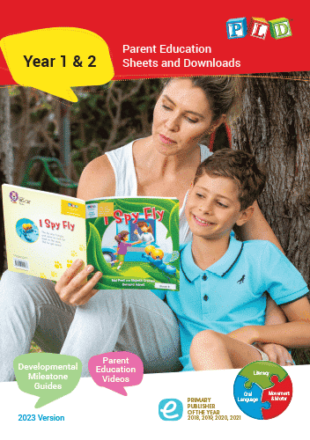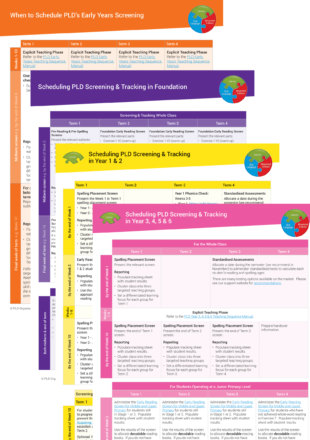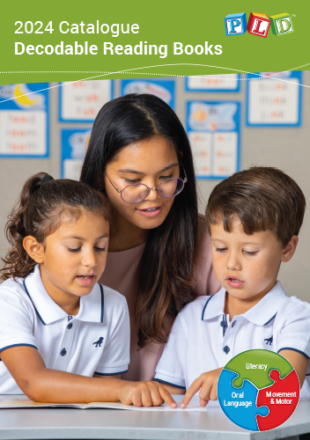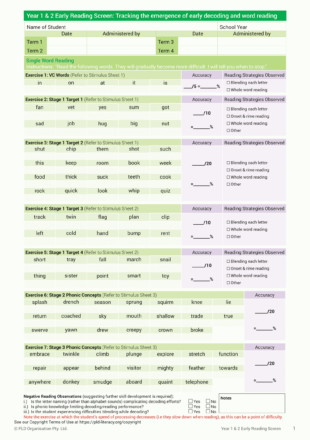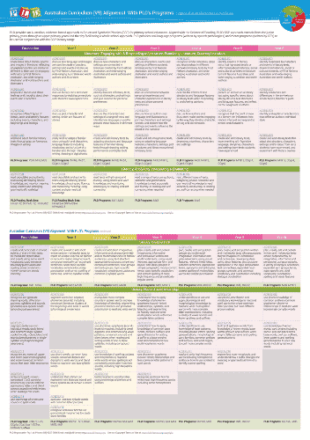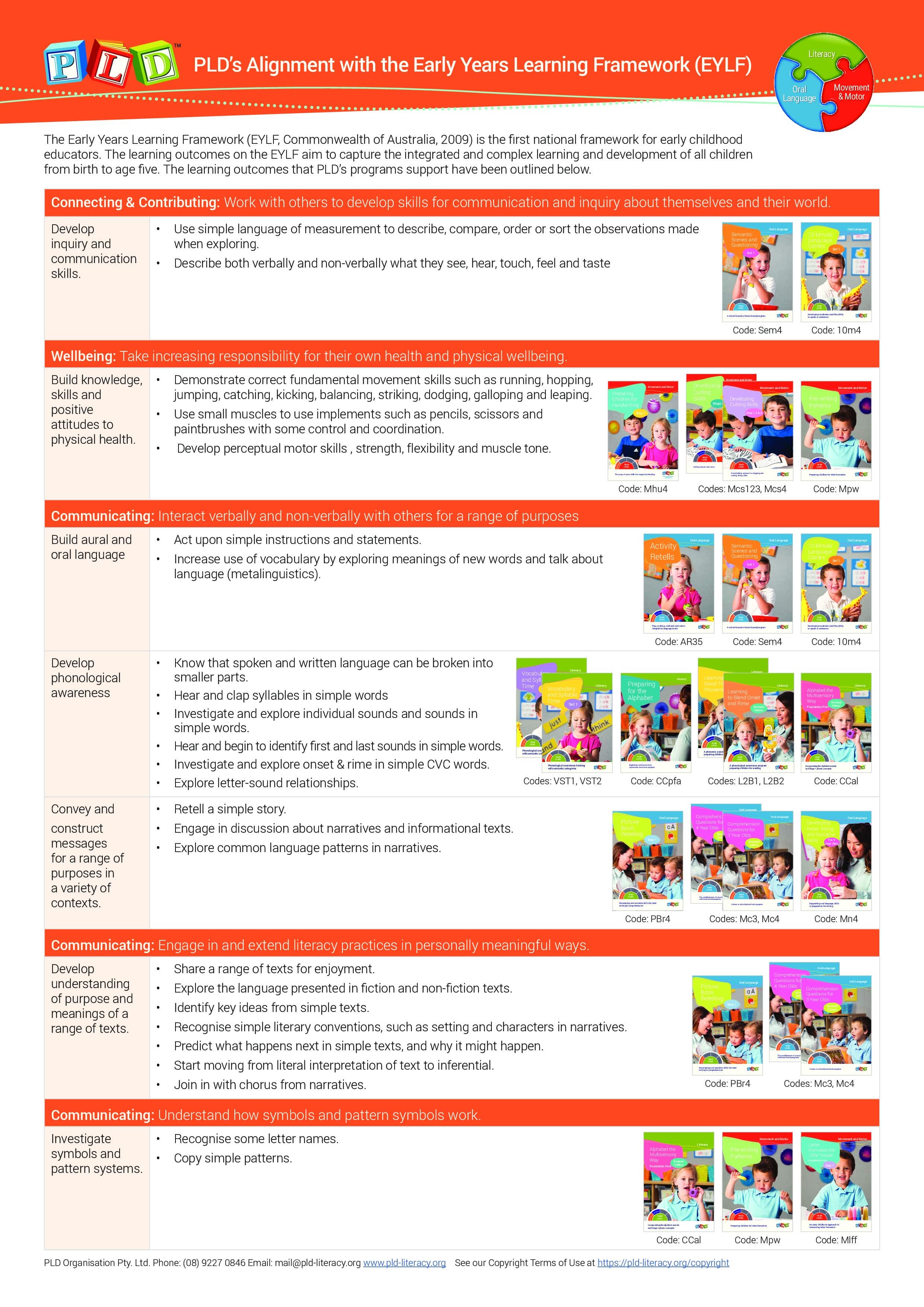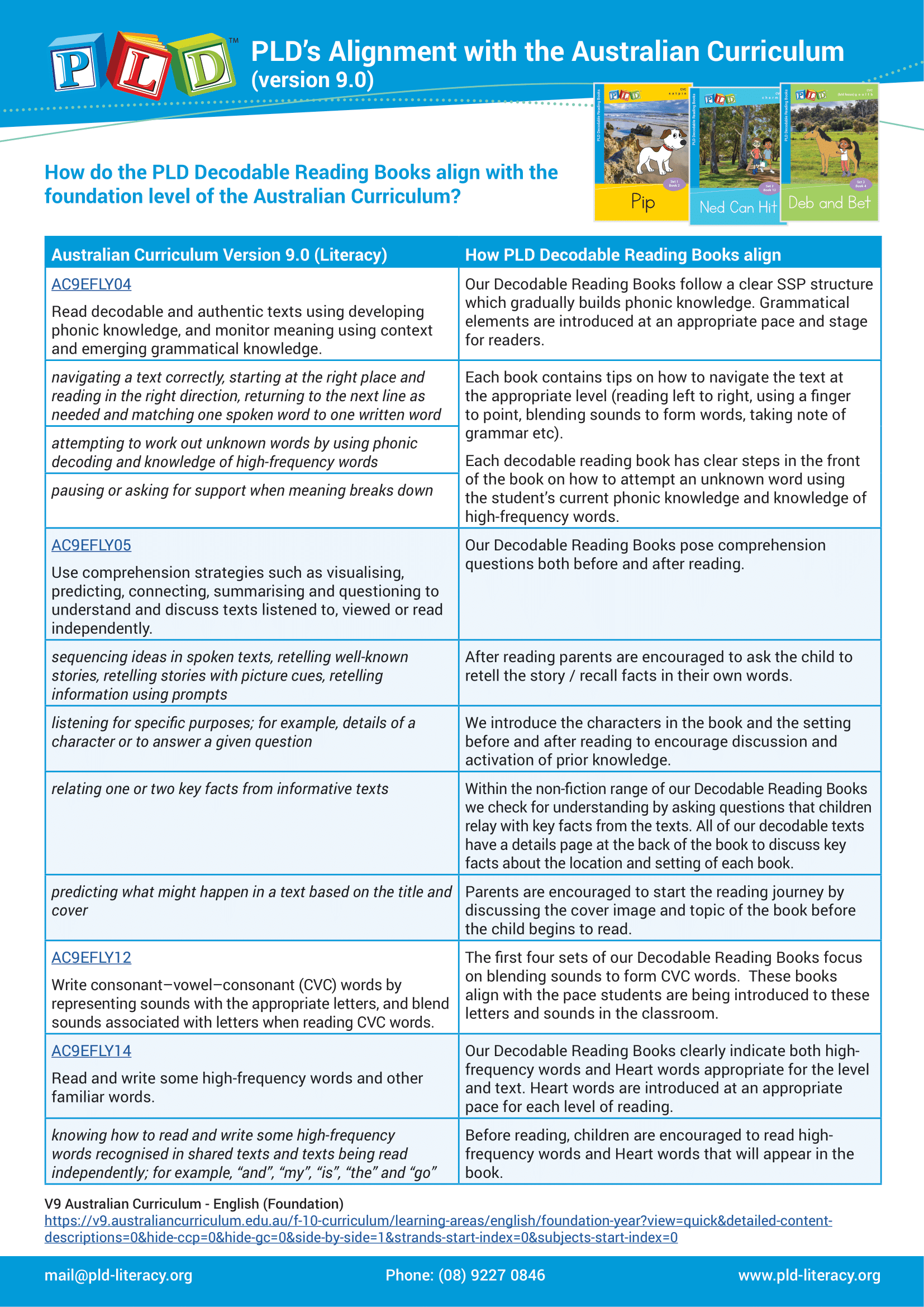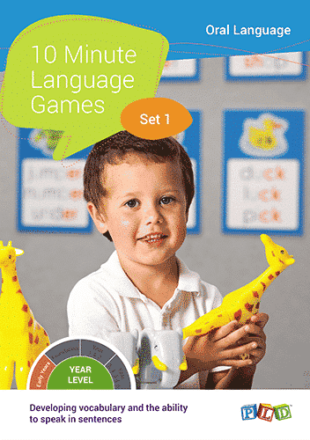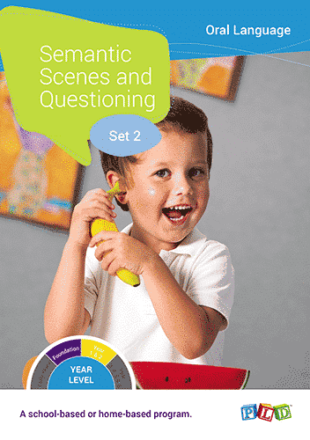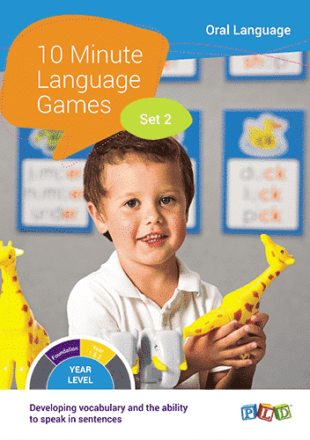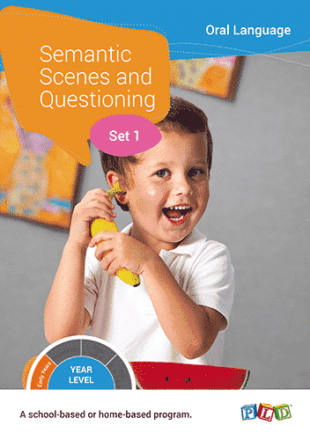-
Year 1 & 2 Parent Education Sheets and Downloads
This booklet outlines key information to be provided to parents, caregivers and the wider community within semester one. Children benefit when home and school work together. To support this, PLD offers an extensive range of parent milestone information sheets and videos. These resources are ideal to be disseminated to parents and the wider community through […]
This booklet outlines key information to be provided to parents, caregivers and the wider community within semester one. Children benefit when home and school work
-
Early Years to Year 6 Assessment Schedule
The following Early Years to Year 6 full year assessment schedule and scope and sequence outlines have been provided as a general term-by-term guide from which schools can adapt their scheduling. While some students will progress faster and some slower, these plans should be considered for the bulk of students. Screening and tracking is an […]
The following Early Years to Year 6 full year assessment schedule and scope and sequence outlines have been provided as a general term-by-term guide from
-
PLD’s Decodable Reading Books Catalogue
Decodable readers present text that can be read using the decoding skills students have acquired. In the context of reading, students are then able to practice the phonic concepts that have been taught explicitly and systematically. For age-appropriate Foundation students, PLD recommends the introduction of decodable reading books within Term 2. Decodable reading books should […]
Decodable readers present text that can be read using the decoding skills students have acquired. In the context of reading, students are then able to
-
Year 1 & 2 Early Reading Screen
The Early Reading Screen presents an evidence-based alternative to whole-language reading assessments
The Year 1 & 2 Early Reading Screen is a quick single-word reading assessment. It presents words that gradually increase in length and phonic complexity.
Student Observations to Accompany a Speech Pathologist Referral
This form provides PLD’s recommended observations to accompany a referral of a student to a Speech Pathologist. It lists various observations for receptive language (understanding or comprehension), expressive language (oral language), attention, literacy skills, speech and social skills.
See our Copyright Terms of Use at https://pld-literacy.org/help-pages/copyright-policy/.
Books: PLD’s books may only be used by the Authorised Purchaser, and the Authorised Purchaser’s students, and only in conjunction with classes taken by the Authorised Purchaser. PLD’s books may be photocopied up to 10% per year for use only by the Authorised Purchaser. The Authorised Purchaser is defined as the original purchaser of the PLD materials.
eBooks: PLD’s eBooks may only be used by the Authorised Purchaser, and the Authorised Purchaser’s students, and only in conjunction with classes taken by the Authorised Purchaser. The Authorised Purchaser is defined as the original purchaser of the PLD eBook. Under the ‘Statutory Educational Licence’ the authorised purchaser can:
- View the eBook as a whole or in part
- Copy the eBook to their personal drive or locally on their device
- Display the eBook on your Interactive Whiteboard, projector or smart TV, for the purpose of teaching the students in their own classroom
- Photocopy or print up to 10% of the eBook per year, for use with the students in their classroom(s).
For copyright purposes, every page of the PLD eBooks will be stamped with the name & email address provided by the purchaser at the time of order. PLD ebooks belong solely to the purchaser and may not be shared with colleagues, parents or anyone else. PLD eBooks must not be uploaded to school servers, intranets or online platforms. Schools wishing to licence PLD eBooks can contact us HERE.
School Licences: A School Licence is a multi-user subscription to a PLD resource, such as a book or program, in a digital and printable format that is accessible via the ‘My Subscription’ section of the PLD website. A School Licence is valid for 12 months from the date of purchase and can be used by an unlimited number of teachers within a school. When bought under a School Licence:
- Resources are accessible in digital, flipbook format, which teachers can access from anywhere, at any time, on any device via the PLD website.
- The resources can be used by any amount of teachers in that school.
- Multiple teachers can access the resources simultaneously.
- The resource is available to print, subject to the standard 10% per year limitation as per Australian Copyright law.
- Updated versions of resources will be automatically accessible to users with a current licence for free, ensuring all users have access to the latest versions of resources.
- Resources are stored centrally and accessed via a secure login account on the PLD website. Thus, all currently subscription resources are accessible in the one convenient place, making resources extremely easy to find. Moreso, the school licence offering eradicates the frustration of lost or misplaced resources and programs which happens often with hardback books.
Additional information can be accessed via the following links:
Books: https://support.pld-literacy.org/en-au/article/plds-printed-electronic-materials-how-can-they-be-used-can-i-share-them-with-a-friendcolleague-9lk4y/
eBooks: https://support.pld-literacy.org/en-au/article/the-pld-ebooks-how-can-they-be-used-what-is-the-copyright-policy-ptfya8/
PLD’s Copyright Policy: https://support.pld-literacy.org/en-au/article/copyright-and-terms-of-use-of-pld-literacy-15tkcer/

